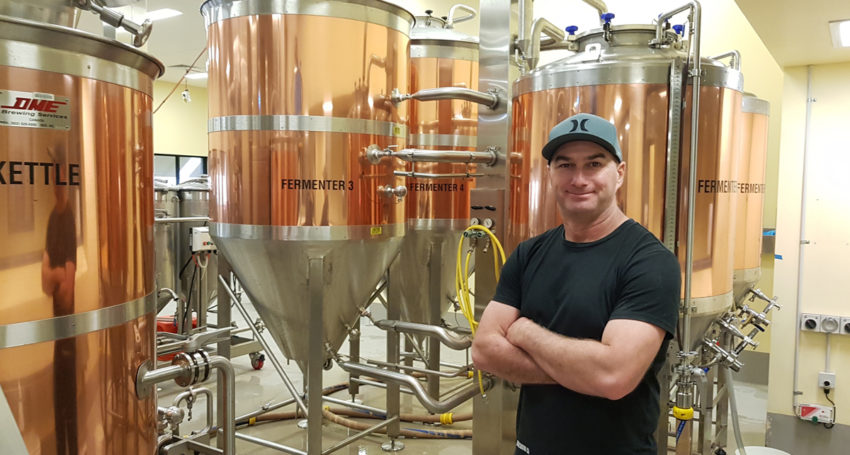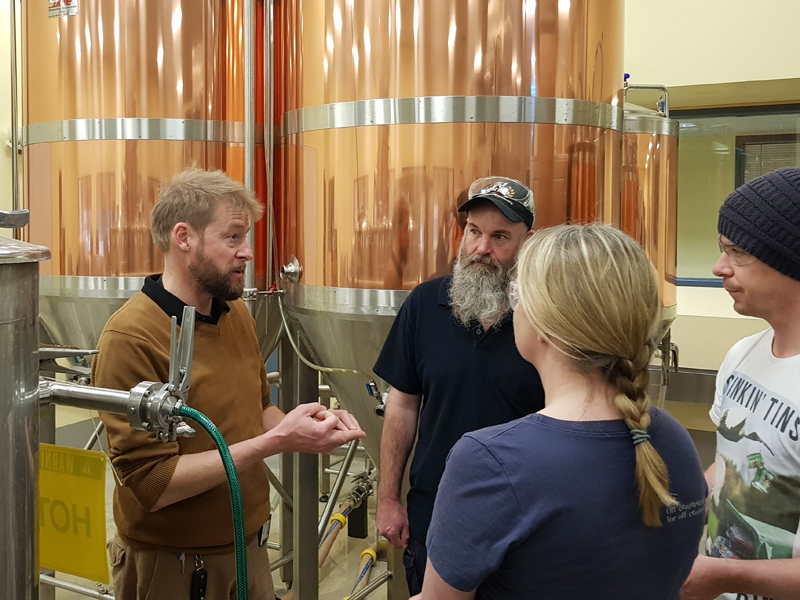Craft boom brews careers in beers
Education
Courses in Adelaide that help home brewers take the step into jobs in the booming craft beer industry are attracting students from around Australia.

Sign up to receive notifications about new stories in this category.
Thank you for subscribing to story notifications.

Although formal qualifications are not required to work in an Australian brewery, the courses offered by TAFE SA are used by many participants to add commercial knowledge to their skills set in a bid to get a foot in the door of the growing industry.
TAFE SA Brewing Lecturer Stephen Nelsen, who has worked in and around brewing for more than two decades and has helped set up numerous craft breweries in South Australia and Victoria, believes there is a demand for more formal education, including apprenticeships.
“The requirement for brewery operators and workers is so big that anyone with even a low-level qualification is getting a job,” Nelsen said.
“I started out with part-time, out-of-hours amateur courses and slowly built towards where we are now and there’s a great need for more.
“Now we’re at Certificate III and I want to turn that into an apprenticeship, which lasts a year with placements. I also see a need in Australia for higher education (university-trained) brewers.”
Economic analysis by ACIL Allen Consulting for the Brewers Association of Australia released this year shows there are almost 4000 full-time equivalent jobs at Australian breweries with flow-on effects supporting more than 14,000 positions in the direct supply chain.
TAFE SA began offering courses a decade ago following the installation of a 600-litre teaching brewery at its Regency Park campus – across the road from the iconic Coopers Brewery.

Stephen Nelsen, left, instructs students in the brewery during TAFE SA’s Craft Beer Boot Camp.
Since then the courses have grown in size and complexity with a Certificate III in Food Processing (Micro Brewing) added in 2016.
Last year alone, seven of the 27 Cert III course participants travelled from outside of South Australia to take part. The Regency Park course is being run three times in 2018 and involves two full-time, two-week blocks. The first course was run in April/May while further course will be held in August/September and October/December.
Nelsen said Regency Park brewing students had the option of staying in on-site accommodation, which included most meals, internet and private rooms from as little as $65 a night, which added to the course’s convenience, particularly for out-of-towner.
TAFE NSW introduced Certificate III in Food Processing (Microbrewing) last year at its Ultimo campus, which has a 200-litre brewhouse. However, that course runs one night a week over 30 weeks, making it difficult for participants living outside of Sydney to attend.
Nelsen said almost all of the interstate participants in the Cert III course at Regency Park had gone home to start their own breweries or work in commercial craft breweries including Gage Roads and Modus Operandi.
“Last cohort we had a couple from Western Australia and one’s working at Gage Roads and the other at another brewery over there and the last few from the eastern states have gone straight in to breweries in New South Wales,” he said.
Aside from the Certificate III course, Nelsen runs an intensive five-day ‘Craft Beer Boot Camp’ twice a year and short beer courses for the hospitality industry and beer judges focusing on beer styles, ingredients, beer judging, palette awareness, flavour knowledge and beer faults.
The brewery is also used in TAFE’s Food Science and Technology Diploma and for training microbiology and food process engineering students from the University of Adelaide.
It is also hired out to gypsy brewers for brewing and bottling.
The six participants at a recent boot camp included a Western Australian archaeologist who is thinking about opening a microbrewery, a Coonawarra winemaker broadening his skills so he can help a brewing friend, a South Plympton home brewer looking to turn his backyard operation into a commercial venture and a homebrew shop owner who has just opened a brew pub in Port Pirie.
“This is my crash course and I’d be confident that at least three quarters of these people will be working in the industry within a year,” Nelsen said.
“They’re newcomers but some people have done this week and gone ‘wow, it’s full-on but I want to know more and they’ve gone into the Cert III qualification.”
One participant was Adam Donnon, who has run homebrew shop Pirie Brewing Supplies in the Mid North of South Australia for the past eight years. Donnon is also head brewer at a new 29-tap brew pub, The Fam, in Port Pirie and will take delivery of a 500-litre brewery in the coming weeks to make his Nash 101 range of beers under the mentorship of South Australian Brewing legend Tony Jones.
Donnon said he wanted to use the week-long course to help prepare him for setting up his own brew house.
“I’m hoping to get a bit more of an insight into commercial brewing and see how something with all the bells and whistles is set up,” he said.
“I also want to tap into Nelsen to point us in the right direction for when we are setting our own system up.”
Boot camp students brewed a New England IPA and a 600-litre batch of Russian Imperial Stout with a double-digit ABV.
Beers made by students under the Campus Brewery label are sold at the Regency Park campus and were also poured at this month’s Beer & BBQ Festival where this year’s Americano Black IPA was awarded a silver medal at the Royal Adelaide Beer & Cider Awards.
Nelsen and his students are no strangers to success at the awards, winning the Best Beer in Show Trophy with their 10/10 Stout in 2013.
Jump to next article



